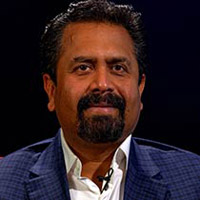What do both Goal Failure and Goal Success have in Common?

What do both Goal Failure and Goal Success have in Common?
The other day I was asking my 12-year-old son how basketball practice went (he is playing goal success goal failure with a new year-round competitive team), and how he feels he is doing. He said, “Good.” That’s the typical answer I get from him, so I decided to dig a little deeper. I asked, “What does your coach say when you make a mistake?” His response was music to my ears, “He ask me if I know what I did wrong. I say yes, and that’s it.” I asked, “What happens if you make the same mistake again?” He said, “Then he helps me to get it right.”
What happens when you fail to meet your goals? What happens when those you lead fail to meet theirs?
I would assume that your answers to these questions would be “it depends.” My answers would be the same. It depends on whether it was due to a lack of effort; or due to taking risks or making an honest mistake or two. Goal failure happens.
Question: What should both your goal success and goal failure have in common?
Answer: Success!
That might seem like an odd answer since failure doesn’t initially seem like it has anything to do with success. But it does. It’s our mistakes along the way that either help us, or hurt us. When we fail in meeting goals we either get stronger or weaker. It’s our choice.
I don’t care for the quote “failure is not an option.” While that might be the c-ase for the pilot who is in the air, failure is required in most cases. We learned how to walk, ride a bike, hit a ball and almost everything else through failure. It is through our mistakes that we get stronger and better. In fact some would argue that failure helps us become even better than success itself for a number of reasons. Does this mean we ought to try to fail, of course not? But once we failed it doesn’t mean there aren’t other options. We can always choose the option to learn and move towards goal success.
Leaders must create a culture in which people are not afraid of goal failure. If those they lead are afraid of failing, they may never take the risks necessary for goal success. Great leaders know how to develop such a culture and get the greatest creativity and innovation from their teams.
Three things I would recommend leaders can do as they drive towards goal success include the following:
1. Talk about your mistakes (as a leader). I was coaching a leader once who was struggling with one particular person on her team that always dominated meetings. I suggested that she set rules of engagement for the team and at the top of the list include things such as listening and not interrupting. I also suggested that they have some kind of noisemaker (like a bell) at the table that people could use if someone violated one of the rules. I recommended that she violate the “not interrupting” rule herself and let people use the noisemakers to call her out. I said this would make people feel more comfortable in calling others out. It worked! This persons who was dominating the meetings became more civil.
Leaders who are willing to admit mistakes and failures make it more comfortable for others to feel that they can mistakes. But it is important that leaders also demonstrate how you can learn from mistakes as well.
2. Talk openly about mistakes with those you lead. Spend time helping those you lead understand that mistakes are okay as long we learn from them and don’t repeat the same ones again. Like the example that I used above of my sons basketball coach, as leaders we have an opportunity to create an environment where people learn from their mistake and get better.
3. Reward risk taking by not punishing it. If people are afraid of making mistakes or failing with their goals, they won’t take risks. Punishing those that take risks and as a result in the process make mistakes or fail, sends the wrong message.
We hope you found this article about “What do both Goal Failure and Goal Success have in Common?” helpful. If you have questions or need expert tax or family office advice that’s refreshingly objective (we never sell investments), please contact us or visit our Family office page or our website at www.GROCO.com. Unfortunately, we no longer give advice to other tax professionals gratis.
To receive our free newsletter, contact us here.
Subscribe our YouTube Channel for more updates.

Alan Olsen, is the Host of the American Dreams Show and the Managing Partner of GROCO.com. GROCO is a premier family office and tax advisory firm located in the San Francisco Bay area serving clients all over the world.
Alan L. Olsen, CPA, Wikipedia Bio

GROCO.com is a proud sponsor of The American Dreams Show.

The American Dreams show was the brainchild of Alan Olsen, CPA, MBA. It was originally created to fill a specific need; often inexperienced entrepreneurs lacked basic information about raising capital and how to successfully start a business.
Alan sincerely wanted to respond to the many requests from aspiring entrepreneurs asking for the information and introductions they needed. But he had to find a way to help in which his venture capital clients and friends would not mind.
The American Dreams show became the solution, first as a radio show and now with YouTube videos as well. Always respectful of interview guest’s time, he’s able to give access to individuals information and inspiration previously inaccessible to the first-time entrepreneurs who need it most.
They can listen to venture capitalists and successful business people explain first-hand, how they got to where they are, how to start a company, how to overcome challenges, how they see the future evolving, opportunities, work-life balance and so much more..
American Dreams discusses many topics from some of the world’s most successful individuals about their secrets to life’s success. Topics from guest have included:
Creating purpose in life / Building a foundation for their life / Solving problems / Finding fulfillment through philanthropy and service / Becoming self-reliant / Enhancing effective leadership / Balancing family and work…

MyPaths.com (Also sponsored by GROCO) provides free access to content and world-class entrepreneurs, influencers and thought leaders’ personal success stories. To help you find your path in life to true, sustainable success & happiness. It’s mission statement:
In an increasingly complex and difficult world, we hope to help you find your personal path in life and build a strong foundation by learning how others found success and happiness. True and sustainable success and happiness are different for each one of us but possible, often despite significant challenges.
Our mission at MyPaths.com is to provide resources and firsthand accounts of how others found their paths in life, so you can do the same.
Unlocking The Ivory Tower | Eric Ball
About Eric Ball Eric Ball is a technology finance professional, investor, and board member. He currently serves as General Partner for Impact Venture Capital, which has made several technology investments. He also chairs the Audit Committee at Glu Mobile, a publicly-traded leader in 3D freemium mobile gaming. Until May 2016, Eric was Chief Financial…
Defining A Meaningful Life | Howard Getson
About Howard Getson Howard Getson is the founder and CEO of Capitalogix, an AI trading systems company that essentially provides its users a “hedge-fund-in-a-box.” Prior to forming Capitalogix, Howard had an active corporate legal practice which he worked in from 1987 to 1993. Howard has a passion for helping people define purpose in their…




